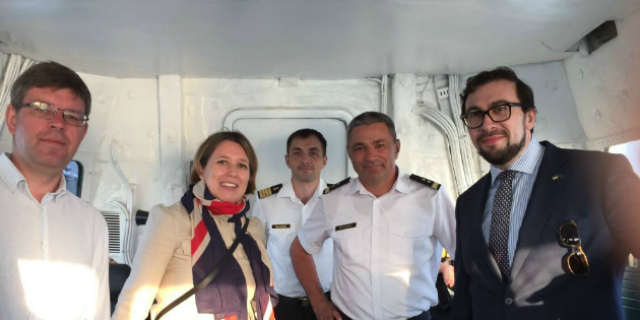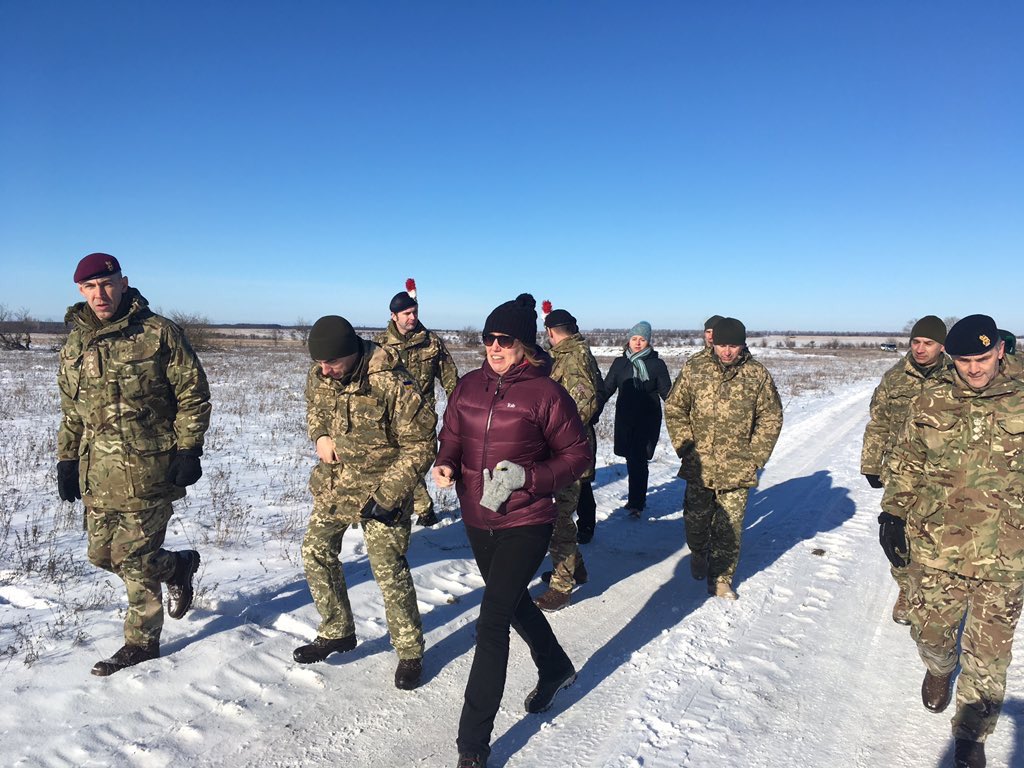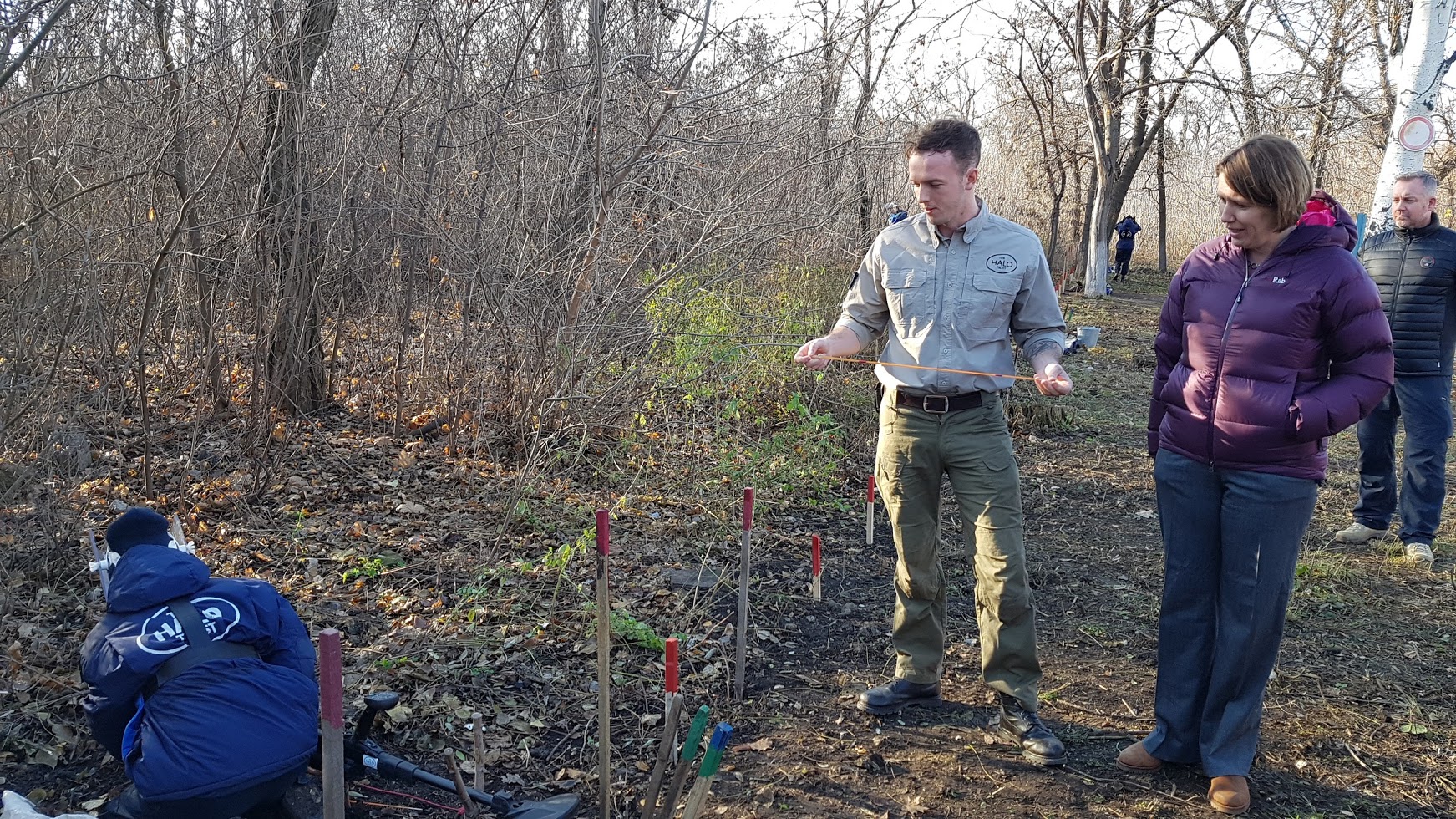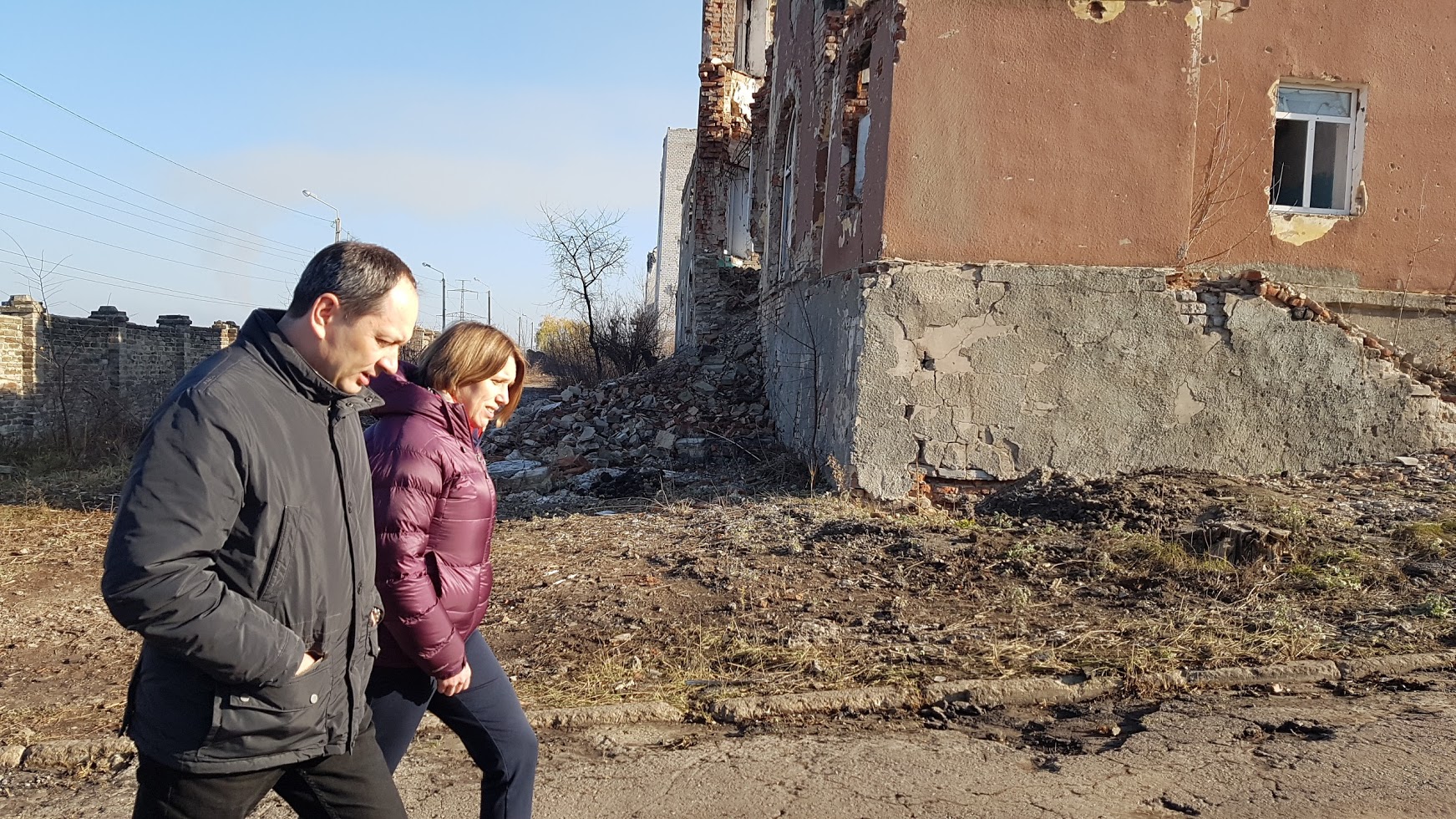15th November 2018 Stockholm, Sweden
Frontline diplomacy: our woman in Ukraine

Historically Ukraine has been described as a borderland – to the East, this has meant the country on the edge of the Russian Empire, and to the West, this has often meant the country on the periphery of Europe. But in the 21st century, Ukraine is a sovereign country at the very heart of a battle for the Rules Based International System and the preservation of the post Second World War Order. Put simply, Ukraine matters.
I took up my posting as Her Majesty’s Ambassador to Ukraine in September 2015 – by this point Russia had illegally annexed Crimea and fomented a conflict in the eastern part of Ukraine, (the Donbas, which recently saw illegitimate and unlawful ‘elections’). Ukraine was also battling to preserve her economy and deliver a necessary and ambitious reform programme. The largest country within Europe with some of the most fertile soil and dynamic young people in the world, Ukraine has huge potential. But since the tragic events of 2014 to 2015, Ukraine has lost over 10,300 people in the conflict, seen 2.3 million people displaced and had to defend herself against Russian hybrid warfare, including concerted disinformation campaigns and cyber attacks.
How we support Ukraine
The UK’s role has been to support Ukraine as she seeks to defend and transform herself into a prosperous European democracy with strong institutions. Through Operation ORBITAL, we have provided defensive training to over 9,500 Ukrainian soldiers. We are the second largest contributor to the OSCE Special Monitoring Mission, which monitors the ongoing conflict in the East.

This year, we will be spending over £35 million in Ukraine, providing humanitarian assistance to those in need, supporting the fight against corruption and building the strong institutions that Ukraine needs in order to withstand threats and thrive. And it is in our national interests that she does so. An accountable and prosperous Ukraine, with a government able to make essential reforms and build its resilience to external aggression, is vital to the long-term security, stability and prosperity of the European continent and of the UK.
Seeing the impact of our work
Last November, the BBC documentary filming team travelled with me to Kramatorsk and Slov’yansk in Donetsk Oblast. Both towns were occupied by Russian-backed separatists in 2014, and then regained by Ukraine’s Armed Forces. The documentary footage shows me surveying the damage sustained during the ferocious battle for Slov’yansk – the local hospital had taken a pounding and stands as a reminder of the civilian cost of a conflict which continues to rage in Europe.
As well as the hospital visit shown in the documentary, I also went to see the various projects that the UK supports in the conflict-affected areas. I was able to visit a Scottish non-governmental organisation, the Halo Trust and learn about how British money is training local de-miners (many of them women) and saving lives.

I also visited a number of small businesses, set up by British-funded micro grants through the International Organization for Migration. It was humbling to meet one young single mother, who having escaped the conflict with nothing, was now able to set herself up in business as a toy-maker. Another beneficiary was a small pottery, which, with our support, was employing a number of people who had been left homeless and unemployed by the conflict. Providing support and employment is vital to a country’s recovery and the prevention of further violence and migration.
Another visit was to the United Nations Population Fund (UNFPA)’s programme to support women and families who are victims of gender based violence – a problem often exacerbated by conflict. The conversations with survivors and practitioners are always harrowing but help us to target our assistance to those most in need. UK money is funding shelters for those fleeing domestic violence, mobile support teams and the provision of medical services. Since 2015, UNFPA, with UK funding, has assisted over 62 thousand people.

Throughout my visit East, I was accompanied by the indefatigable Vadym Chernysh, Minister for the Occupied Territories and Internally Displaced People (IDPs). This demonstrates not only the close partnership that we have with our Ukrainian colleagues, but also the value which they attach to UK support.
My journey to Ukraine
When I graduated from Nottingham University in 1995 with a languages degree, I always hoped that I might one day become a diplomat, but assumed that it was not for the likes of me. It took me 6 years to pluck up the courage to apply. I am happy to say that my doubts were misplaced – a career in the Diplomatic Service is open to those who are interested in serving their country, want to make a difference and have a natural curiosity in the world around us.
As an Ambassador, I see both the best and worst of human nature and carry the responsibility of relations between two countries. I also have the privilege of working with a diverse, dedicated and talented team of British and Ukrainian staff, who help me deliver the UK’s foreign policy objectives here. Without them, none of it would be possible.
Serving in Ukraine continues to be a privilege and a dream job – one which requires resilience, patience, tact and a sense of humour. It is a role where any one of my team can (and does) make a difference – and we are proud that we do so.
Find out more:
• Ambassador Judith Gough on Twitter
• the UK’s relationship with Ukraine